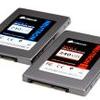SSD Performance File Copy tests
SSD Performance File Copy tests
In this round of benchmarks we start off with our latest additions in our test suite, real-world file copy tests. Currently certain controllers benefit from compressed files, while others don't. Certain storage units hate small files, others work well with it. So it only makes sense to do some manual tests on that.
Any storage unit's nightmare, whether that is an HDD or SSD, is storing really small files as fast as possible. So on our Test PC we created a RAMDISK partition (we can't use an SSD/HDD here as it would be a bottleneck) in which we install roughly 500MB worth of text files, highly compressible. We now measure how many seconds it takes to copy the files from the RAMDISK towards the storage unit tested today.
We copy many small files that can be compressed. But we made the files so small that the file-system will simply choke up. The results that you see in the above chart as based on a near silly test, we take 0.52 GB of random text files sized from just merely bytes (the vast majority) up-to 250KB.

In total the copy instruction queues up over 113,586 files for this test, and these are being copied from the RAMDISK towards the storage unit in the number of minutes shown above. Lower is obviously better.
Now the bottleneck is the file-system and the actual PC itself. This test is bizarre in the sense that you drop hundred-thirteen-thousand miniscule files onto the storage solution. The difference will be marginal, even compared to HDDs as NAND based flash solutions behave very similar.
Performance Game load times
Here at Guru3D.com we cater for our audience of gamers. And as such I like to start off with three real world performance game tests for a change.

We take the Alien Versus Predator benchmark and run it a couple of times. From the moment we click on the icon and load up the game to the moment the benchmark starts to run is what we are looking at for load time in seconds.
The results seem to stagnate at 9 seconds with the faster SSDs, meaning that the storage unit is no longer a bottleneck, yet the overall PC is.

